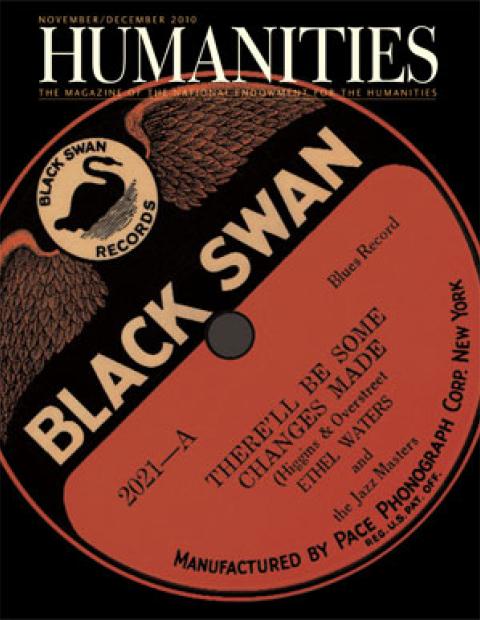“Voice registers the weird sexiness of reading poetry, the illusion it enables of a private tryst between author and reader.” So says Lesley Wheeler, an English professor at Washington and Lee University, where she has had her students don Japanese garb and read original haiku aloud to try to get at the slippery concept of voice in poetry.
Voice is so vague, in fact, that handbooks of literary terms tend to avoid discussing it at all. But, still, whether poets and literary critics discuss voiced text or textual voice (the first having to do with the interpretation of a reader reading aloud and the second, with that of a reader reading silently), one thing is clear: Voice has transcendence and spiritual power.
Wheeler’s NEH-funded Voicing American Poetry: Sound and Performance from the 1920s to the Present, published in 2008 by Cornell University, delves into voice as metaphor, medium, pedagogy and politics, and genre. Voice, then, as metaphor can mean for creative writing students the struggle to find their voice. As a medium it can mean, as it does to critic Denis Donoghue, restoring “the words to a source.” Donoghue, writes Wheeler, “values voice for its associations with community, stable meaning, and empowerment.” Speaking of empowerment, there’s the idea dear to many an underdog, that poetry’s greatest purpose is to give a voice to the disenfranchised. Additionally, T. S. Eliot weighed in on the matter in his famous essay “The Three Voices of Poetry,” in which he sees the first as “the voice of the poet talking to himself”; the second as a voice “addressing an audience” in dramatic monologue, one with “conscious social purpose”; and the third, one “in which,” Wheeler writes, “the poet is subsumed into characters.”
Eliot himself was not one to shy away from voicing his own work. His recording of The Waste Land makes reading the classic of modernist poetry nearly impossible for anyone to read without hearing the voice of Thomas Stearns himself. Robert Frost, though, at least at first, “cowered” in a corner, as biographer and poet Jay Parini has described, while someone else read his poems aloud. This even seems to have been the fashion for a while: “Ambivalence and reclusion on the author’s part during such performances were normal,” writes Wheeler. Edna St. Vincent Millay and Langston Hughes, however, were both superstars of the spoken word in their day, Millay on the radio and Hughes on the lecture circuit.
The popularity of national poetry competitions and slam festivals hearkens back to the nineteenth century’s love of similar events in schools, especially for choral readings. The movements that reading poetry aloud have undergone from Victorian times to our own have been much characterized by changing the accent from elocution to oral interpretation. In spite of theorists such as Jacques Derrida, who insists that we “understand writing as writing,” explains Wheeler, “and not a transcription of voice,” the vividness of what poetry conveys still seems to come down more to what readers hear on the page than what they see there.

